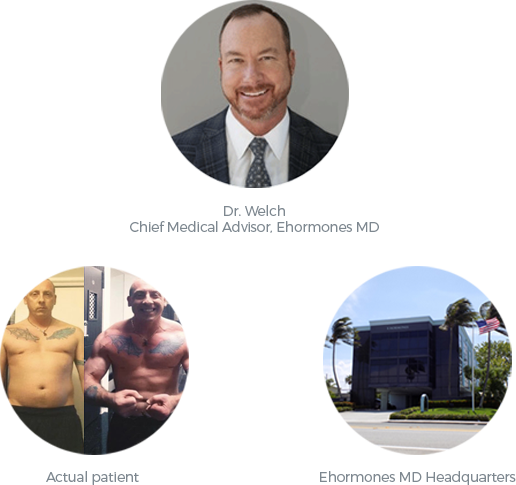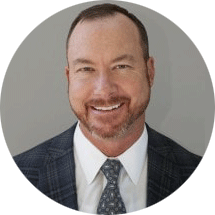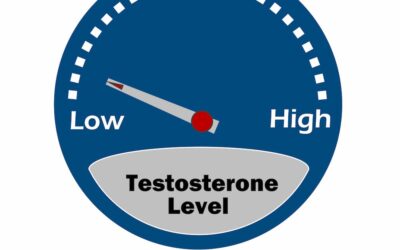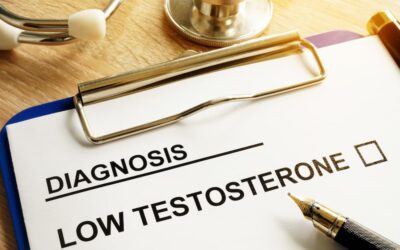Testosterone Hormone Replacement Therapy
TESTOSTERONE! It’s what makes a man, a MAN. But, as we age, the body’s ability to produce Testosterone declines year over year. If you’re a male age 30+, the elite Testosterone Doctors at one of Ehormones MD’s 30 locations nationwide will get you back to feeling like yourself in no time.
![]()
Reviews don't lie
There is a reason our offices and our Doctor are rated 4.7 on google! We care about our patients experiece from the moment they walk into the door until full recovery.
Testosterone Hormone Replacement Therapy
TESTOSTERONE! It’s what makes a man, a MAN. But, as we age, the body’s ability to produce Testosterone declines year over year. If you’re a male age 30+, the elite Testosterone Doctors at one of Ehormones MD’s 30 locations nationwide will get you back to feeling like yourself in no time.
![]()
Reviews don't lie
There is a reason our offices and our Doctor are rated 4.7 on google! We care about our patients experiece from the moment they walk into the door until full recovery.

The most effective delivery method for Testosterone Replacement Therapy (or “TRT”) is Testosterone injections. Testosterone Replacement Therapy typically requires weekly Testosterone injections and ancillary medications, where necessary. These may include medications which allow the testes to continue its’ natural production of testosterone while on TRT, and an Aromatase Inhibitor, typically in pill form, to suppress the body’s conversion of Testosterone to Estrogen.
Testosterone Replacement Therapy
Every man has his own unique set of circumstances and must be treated as an individual. Therefore, Ehormones MD managed physicians perform physical examinations on every patient, in addition to using a combination of comprehensive, diagnostic lab work, feedback from the patient himself, as well as medical history and symptomology to determine the patient’s individual Testosterone Therapy regimen. However, it is important to note that not every adult male will be a candidate for Testosterone Replacement Therapy. This is why it’s very important that you speak with a doctor who specializes in treating Low Testosterone in adult men.
Are You Age 30+ and Experiencing Symptoms of Low Testosterone?
- Decreased Energy
- Increased Belly Fat
- Decreased Muscle Tone
- Low Sleep Quality
- Decreased Sex Drive
- Erectile Difficulties
Low T is common. Millions of men suffer from low T.
Ehormones MD Video Testimonial
We’re so proud of Trever and his excellent results. It’s no surprise, though. Trever is just 1 of over 3,000 satisfied Ehormones MD patients nationwide. Sign up for a free consultation today, and we can help you too!
Read our testimonials and reviews. Educate yourself & make the right decision.
Call Ehormones MD now for a Free Consultation +1 (800) 658-8858. We’re here 24/7 to help.
What is Low T?
Low T is short for low testosterone – a condition that affects most men as they age. Testosterone levels typically decline after the age of 30 and become more prevalent and symptomatic in men 40 and over. Low T causes older men to lose muscle, energy and motivation. It can affect a person’s mood, making them irritable and more prone to depression – often call “grumpy old man syndrome”. Low T is also a leading cause of sexual dysfunction in aging men, including a drop in libido and ability to get and maintain erections. As men age, natural testosterone levels may decline, and in some cases, this can be addressed through Testosterone Replacement Therapy (TRT) when clinically appropriate.
What Are the Benefits of Testosterone Replacement Therapy?
Testosterone Replacement Therapy for men is becoming more and more common as men are increasingly aware of the potential benefits. Testosterone Replacement Therapy may support improvements in areas such as mental clarity and focus for some individuals. Other potential outcomes, depending on individual response, can include changes in body composition, libido, motivation, and energy levels. Hormonal changes, including reduced testosterone levels, are relatively common in men over the age of 30 and may contribute to a variety of symptoms. EHormonesMD will develop an individualized and comprehensive treatment protocol to help you achieve the maximum benefits of Testosterone Replacement Therapy.
Increased Sex Drive
For men with decreased libido or those who have problems with erectile dysfunction, also known as impotence, Testosterone Replacement Therapy can be significantly beneficial. While many men as young as 30 require Testosterone Replacement Therapy to restore Testosterone levels, HRT is particularly beneficial for men over the age of 40, when testosterone levels may have reached a significant decline. Your EHormonesMD doctor will be able to determine whether Testosterone Replacement Therapy can help you fight the issues of waning libido and/or erectile dysfunction, and remove the need for ED medications.
Improve Your Mood
While it may not be immediately apparent, hormonal changes in men—including reduced testosterone levels—can be associated with emotional and psychological shifts as they age. Lower testosterone levels have been linked to decreased motivation and self-confidence, which may influence personal relationships and performance in daily activities. Feelings of sadness and depression, as well as the inability to concentrate on important tasks or remember important pieces of information are also common with decreased testosterone levels.
Testosterone Therapy to Increase Sex Drive and Function
Testosterone is a hormone present in both men and women, which has a significant impact on sexual drive and performance, particularly attraction and arousal. Low testosterone can reduce your ability to have satisfying sex, decrease sexual desire and is a major cause of erectile dysfunction. Many men who take ED medications would probably not need to if they boosted their testosterone levels. In conjunction with boosted libido, testosterone also increases physical ability, muscle tone and it improves mood and stamina – all good things when you are talking about sex!
According to Abraham Morgentaler, M.D.in Havard Health Publishing , “The primary hallmark of low testosterone is low sexual desire or libido, but another can be erectile dysfunction, and any man who complains of erectile dysfunction should get his testosterone level checked. Men may experience other symptoms, such as more difficulty achieving an orgasm, less-intense orgasms, a smaller amount of fluid from ejaculation, and a feeling of numbness in the penis when they see or experience something that would normally be arousing.”
What Causes Low Sex Drive?
One of the most common causes of decreased sex drive and sexual function is low testosterone.
Symptoms include:
- Decreased libido
- Lower sexual function and ED
- Decreased desire
- Lack of energy
- Lack of enthusiasm
How Can Testosterone and HRT Therapy Help?
Ehormones MD doctors can use Testosterone Therapy to increase sex drive and function in men over 30. When testosterone levels are optimized, the body typically responds with an increased desire for sex and better sexual response. You may notice many benefits.
Benefits:
- Increased sexual desire – Sex drive
- Improved sexual function
- Faster arousal
- Better sleep
- Improved muscle tone
- Decreased belly fat
- Increased Energy and Motivation
- Increased physical ability
- Improved mood
- Better Quality of Life
Call Ehormones MD now for a Free Consultation +1 (800) 658-8858. We’re here 24/7 to help.
Why do men need testosterone?
Testosterone serves many purposes in the body, chief among those it’s ability to transition a boy into a man. In children, testosterone is responsible for developing the male sex organs. Testosterone is quite literally what makes a man a man. While women have testosterone in their bodies, too, testosterone is perhaps most known as the male sex hormone. In addition to regulating sex drive and sexual function, it also plays an important role in the development of muscles and the regulation of body fat.
What does low testosterone do to a man?
Without testosterone, a boy could not experience puberty. A man wouldn’t develop his distinctly male pitch. A growing number of experts in the medical community assert that low testosterone can be severely detrimental to a man’s physical health. In fact, low testosterone can lead to weak bones, which can result in osteoporosis. Low Testosterone can also lead to low muscle mass and increased body fat. In fact, a man who is depleted of testosterone will often experience mild to severe depression. As you can see, testosterone is one of the most crucial hormones in the body.
What are the benefits of testosterone replacement therapy?
Some individuals who begin Testosterone Replacement Therapy (TRT) may notice changes in areas such as energy, mood, sleep, libido, or exercise capacity over time; however, responses can vary and should be closely monitored by a healthcare provider.A clean diet and regimented exercise routine is highly recommended to achieve the full benefits of a testosterone replacement therapy program. Several months into a testosterone therapy regimen, a man can expect to see modest improvements in his physique, including improvements in muscle mass and decreases in body fat.
According to a recent study, “a meta-analysis has reported the positive impact of TT on insulin resistance and glycaemic control plus reduced visceral adiposity, lean muscle mass, sexual desire and erectile function”
What kind of doctor prescribes testosterone
Therefore, it cannot be stressed enough the importance of taking testosterone only under a doctor’s supervision. It is not uncommon for people to acquire testosterone on the black market and self-prescribe, but this is a recipe for disaster. Testosterone can cause increases in the size of red blood cells. If these blood cells expand too much, they can cause blood clots, potentially leading to stroke. Ehormones MD physicians constantly monitor their patients’ blood levels to make sure all levels stay in normal, healthy ranges. Blood diagnostics as well as constant supervision by a medical doctor are a must while on testosterone replacement therapy. It is, however, important to note that due to the growing popularity of testosterone replacement therapy and a heavy dose of marketing by Big Pharma, every doctor and his brother are now prescribing testosterone to their patients. This is actually quite dangerous, as the majority of doctors prescribing testosterone really are not well versed in the intricacies of testosterone dosing, modulation and the risks associated with incorrectly prescribing testosterone.
What are the risks of testosterone replacement therapy?
Testosterone replacement therapy, if prescribed incorrectly, can pose a number of risks for the patient. Ehormones MD Medical Director, Dr. Frank J. Welch, MD, is a testosterone therapy veteran. His interest in male testosterone replacement therapy actually began in the early 2000s when he became a testosterone therapy patient. Having experienced life changing results on testosterone replacement, himself, Dr. Welch decided that he would make it his life’s work to help change his patient’s lives with the benefits of testosterone replacement therapy. Dr. Welch would be the first person to say, however, that testosterone is not something you want to mess around with. The average family physician or urologist prescribing testosterone doesn’t take the time to research the half-lives of the testosterone he or she is prescribing. Half-life is essentially what determines how often a patient should be injecting testosterone. For instance, testosterone cypionate has a half-life of roughly 6 days. This means that half of the testosterone has run its course and left the body after just one week. For this reason, Dr. Welch generally recommends that testosterone be taken once to twice weekly. On a daily basis, we hear from prospective Ehormones MD patients who were treated by their doctor with a testosterone injection every 2 weeks, sometimes 3 weeks and even just once per month. This is just absurd, considering the half-life of testosterone cypionate.
Some studies show “that men with heart disease who underwent testosterone therapy saw only slight improvements. Some were able to increase their walking distance by 33 percent. Another study found that hormone therapy only widened healthy arteries but had no effect on angina pain.”
Can testosterone be taken alone?
Additionally, while taking testosterone, there are a couple of necessary ancillary medications that must be taken in conjunction with testosterone. When exogenous testosterone enters the body, the pituitary gland stops producing luteinizing hormone, also known as LH. This can present a problem if not addressed properly by a doctor who is well versed in testosterone replacement therapy. You see, luteinizing hormones acts as a signal to the testicles to produce testosterone. If this is not addressed, the testes can atrophy, or shrink. The doctor may prescribe additional medication to be used in conjunction with your treatment. As you can see, testosterone replacement therapy is not to be taken lightly. It requires a significant depth of knowledge for a doctor to prescribe testosterone replacement therapy both safely and responsibly. If you are interested in learning more about how the expert doctors at Ehormones MD can treat your low testosterone, feel free to call us at (800) 658-8858. We’ll even give you a 100% Free and Confidential consultation.
What are the symptoms of low testosterone?
Low testosterone can cause symptoms that range from depleted energy and motivation to decreased muscle development and increases in central belly fat.
Some of the symptoms include:
- Increase in central body fat
- Decreased muscle tone
- Depressed muscular development
- Low libido and/or erectile dysfunction
- Lower energy
- Lack of motivation
- Sleep issues
- Decreased enjoyment in life
Ehormones MD is Ready to Help You – Call now! (800) 658-8858
Recent blogs about Testosterone Hormone Replacement Therapy
Tell-Tale Signs of Low Testosterone
When you were 20, 25, or even 30-something years old, how did you imagine life would change as you got older? No matter what kind of future you pictured, it’s probably safe to say that thinning hair, a fast-declining sex drive, and an expanding gut wasn’t what you had...
When Men Should Consider Hormone Therapy
Getting older has unfairly ended up with a less-than-fabulous reputation, leading many people to dread every new year that gets added to their age. In reality, most of the negative side effects of aging can be effectively minimized with a solid age management plan –...
What to Expect After a Low Testosterone Diagnosis
For many men that are diagnosed with low testosterone, or “low T”, the first question is, “What now?” We’re breaking down exactly what to expect after being diagnosed with low-T levels, setting you up with a handy guide that will prepare you for what’s ahead. Low...
Nationwide locations ready to serve you

To achieve the best possible results for each patient, we must treat everyone as a unique individual. – Dr. Welch
Dr. Frank J. Welch M.D., M.S.P.H., F.A.C.P.M
Dr. Frank J. Welch is a leading advocate and expert in the field of hormone replacement therapy, wellness and disease prevention. Dr. Welch specializes in treating male patients with Testosterone Replacement Therapy.
Dr. Welch received his medical degree in from the University of New Mexico in 1993, where he also graduated Valedictorian in Chemical Engineering in 1985. He completed his residency in Preventive Medicine from Tulane University in 1998.
Dr. Welch is a Board Certified Fellow of the American Board of Preventive Medicine and is certified in American Academy of Anti-Aging Medicine (A4M). He has worked in both academic and public health civil service for 20 years and is a highly experienced age management and hormone replacement physician. Dr. Welch is certified in anti-aging medicine with a special interest in the treatment of andropause and hypogonadism.
If you are interested in becoming a patient of Dr. Welch, call Ehormones MD at +1 (800) 658-8858 for a 100% Free Consultation.
Call Ehormones MD now for a Free Consultation +1 (800) 658-8858. We’re here 24/7 to help.
Contact Us
If you have any questions or want to book a treatment, you can contact us using contact form bellow.
We’re here 24/7 to help.



